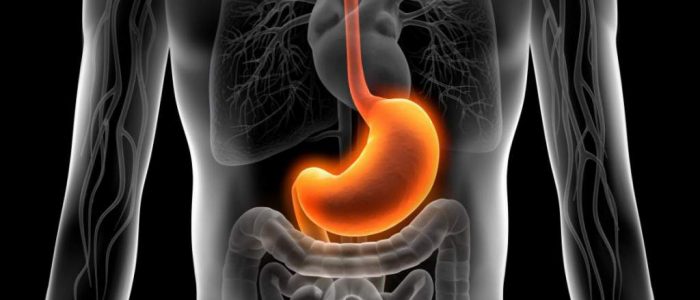What is gastritis and how can we detect it? What are the symptoms of gastritis and what risks does it carry? How can we apply a treatment to gastritis and how effective is each one?
Gastritis is the inflammation, irritation, or erosion of the stomach lining.
If it appears suddenly it is known as "acute gastritis", while if it appears gradually it is called "chronic gastritis".
What types of gastritis are there?
Chronic gastritis
It develops gradually and often leads to long-term complications.
Some people do not notice symptoms for a few years until other problems arising from inflammation appear.
Chronic gastritis causes thinning of the gastric mucosa and gradually increases the number of inflammatory cells, which also carries the risk of developing gastric cancer.
Acute gastritis
It appears suddenly and usually occurs for a short period of time; although it can cause serious symptoms during your bout of activity.
Symptoms can come and go, depending on some factors, such as the individual's lifestyle, which affects the digestive system.
Atrophic gastritis
It is a form of chronic gastritis that causes a gradual loss of gastric glandular cells, which are replaced by fibrous and intestinal tissues.
Causes of Gastritis
The causes for which gastritis can appear are several, since excessive consumption of alcohol, to stress or chronic vomiting can favor its appearance.
Also the consumption of medications, such as aspirin or some anti-inflammatory. In addition, it can arise for the following reasons:
- Heliobacteria Pylori: it is a bacterium that lives in the mucous walls of the stomach. If not treated in time, the infection can lead to ulcers or even stomach cancer.
- Bile reflux: A reverse flow of bile in the stomach from the biliary tract, which connects the liver with the gallbladder.
- Infections caused by viruses and bacteria.
Untreated gastritis can lead to serious blood loss and increase the risk of developing stomach cancer.
Symptoms of Gastritis
The symptoms of gastritis can vary between individuals, since there are individuals who do not even have any of these symptoms. However, among the most common symptoms are:
- Recurring nausea or upset stomach
- Abdominal distension
- Abdominal pain
- Vomiting
- Indigestion
- Burning sensation in the stomach between meals or at night
- Hiccup
- Loss of appetite
- Vomiting of blood or ground substances
- Dark, tarry stools
How to know if it really is Gastritis
Before diagnosing gastritis, your doctor will review your medical and family history, as well as perform a physical evaluation. Later, they may ask you for some analysis, such as:
- Upper endoscopy: It is performed by introducing a thin tube with a small camera through the mouth to observe in detail the state of the stomach lining. In this way, the doctor can check if there is inflammation and if it is possible to perform a biopsy. A biopsy involves removing a small sample of tissue for analysis in the laboratory.
- Blood test: Your doctor may need to perform several blood tests. You can also check the red blood cell count, to see if it is anemia. The blood test can also check for H. Pylori infection.
- Examination of blood in the stool: This will confirm the presence of blood in the stool, which is a possible sign of gastritis.
How to treat gastritis
Treating Gastritis usually has several effective alternatives. To learn how to cure gastritis now, take a look at the following:
- Treatment based on antacids and other medicines to reduce heartburn.
- Avoid specific foods, such as very spicy or hot.
- For gastritis caused by an H. Pylori infection, your doctor may prescribe a treatment with some antibiotics, as well as a drug to block acids.
- If the cause of gastritis is pernicious anemia, then he may recommend some doses of vitamin B12.
- The doctor may also restrict the most irritating foods in your diet, such as the daily intake of lactose or gluten.
Once the underlying problems are gone, gastritis usually does too.
It is recommended that you speak with a doctor before stopping any medicine or starting any medical treatment for you.



